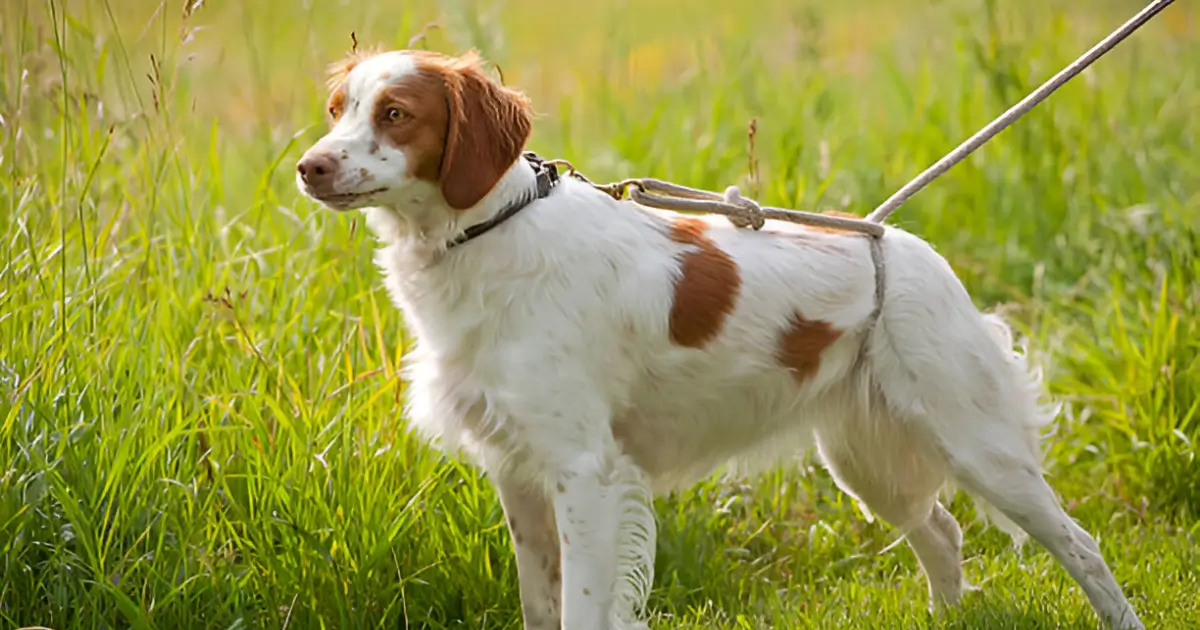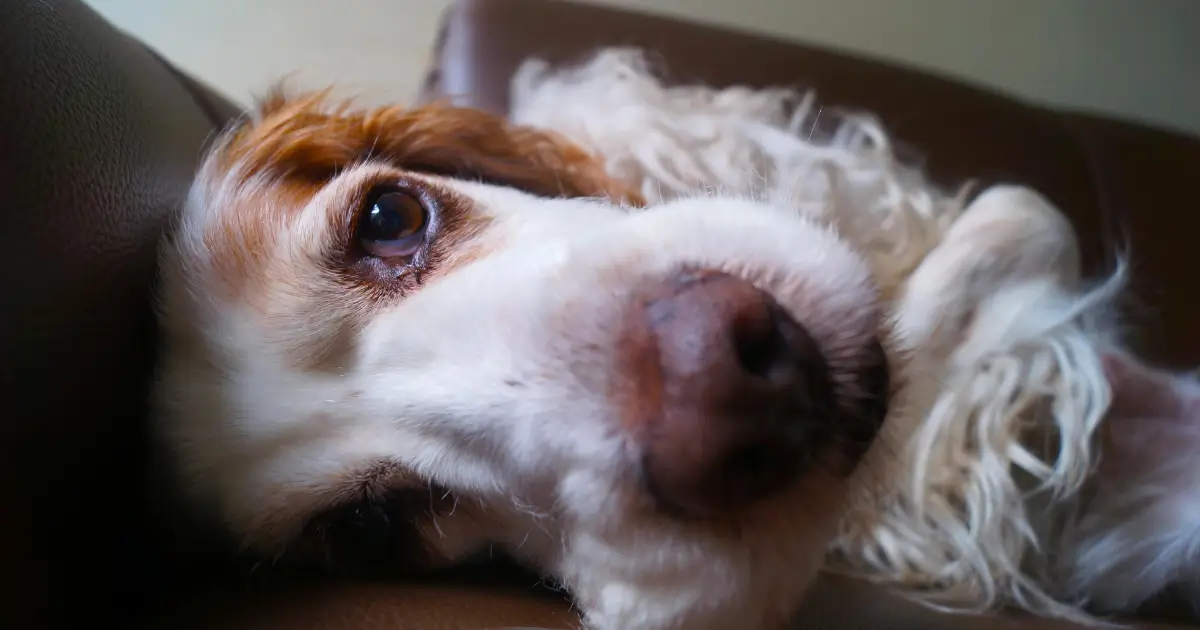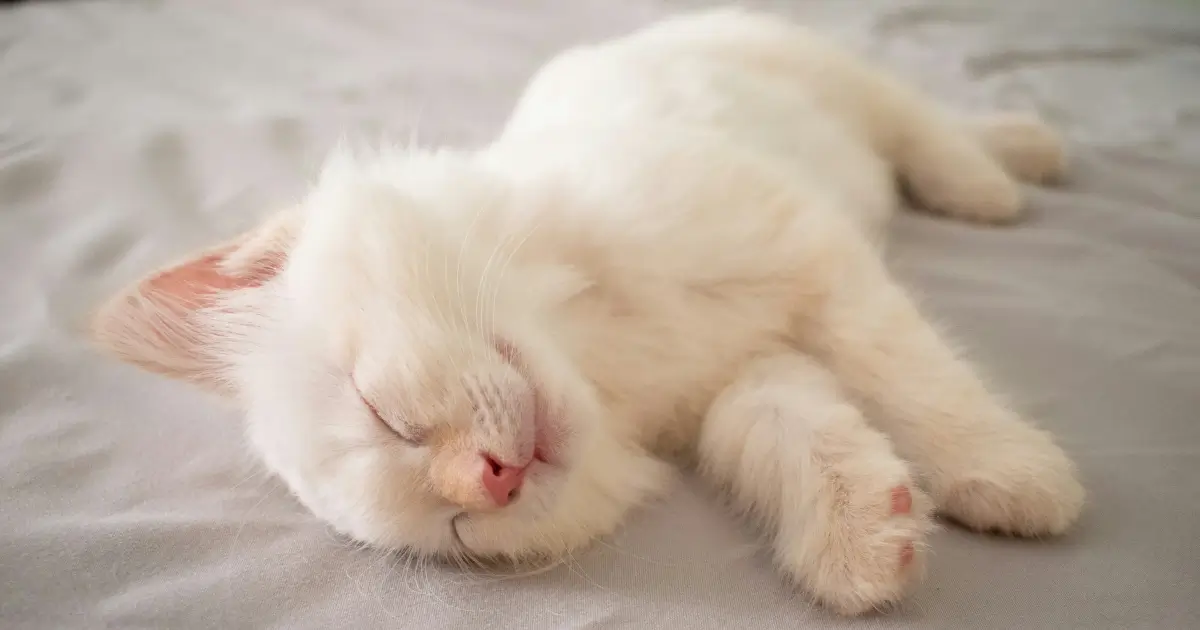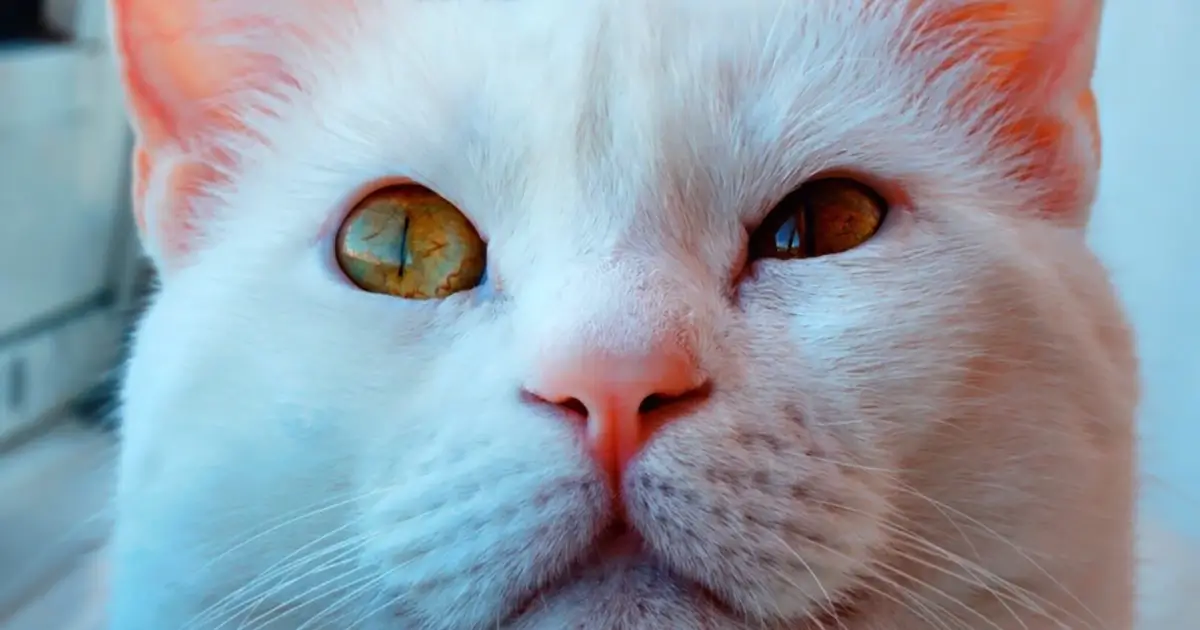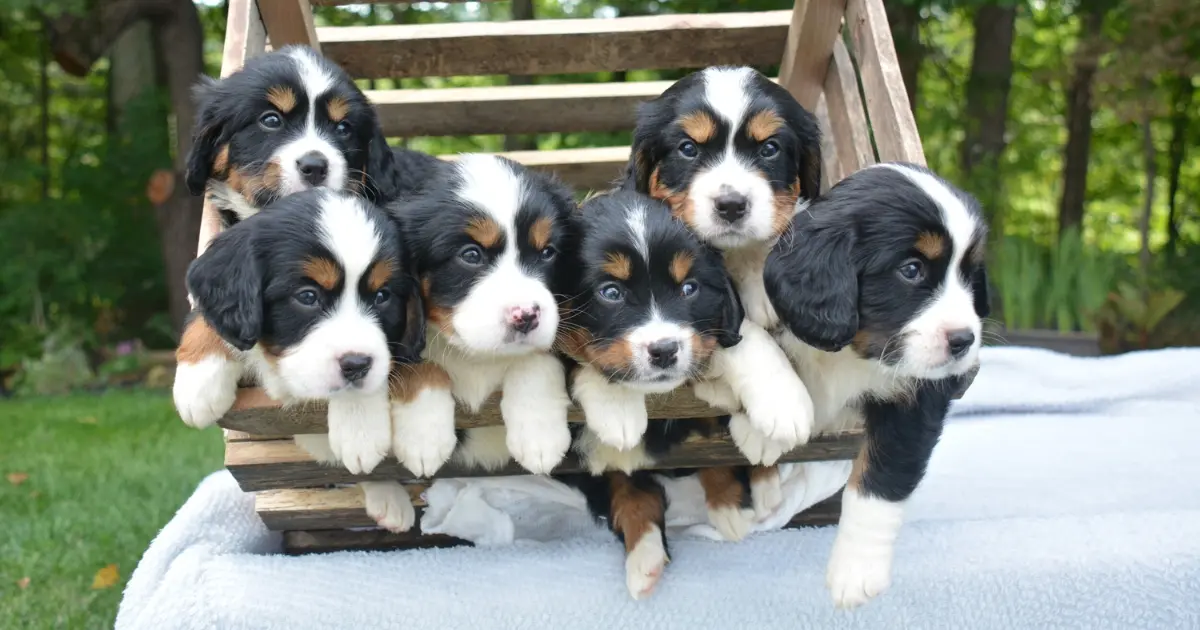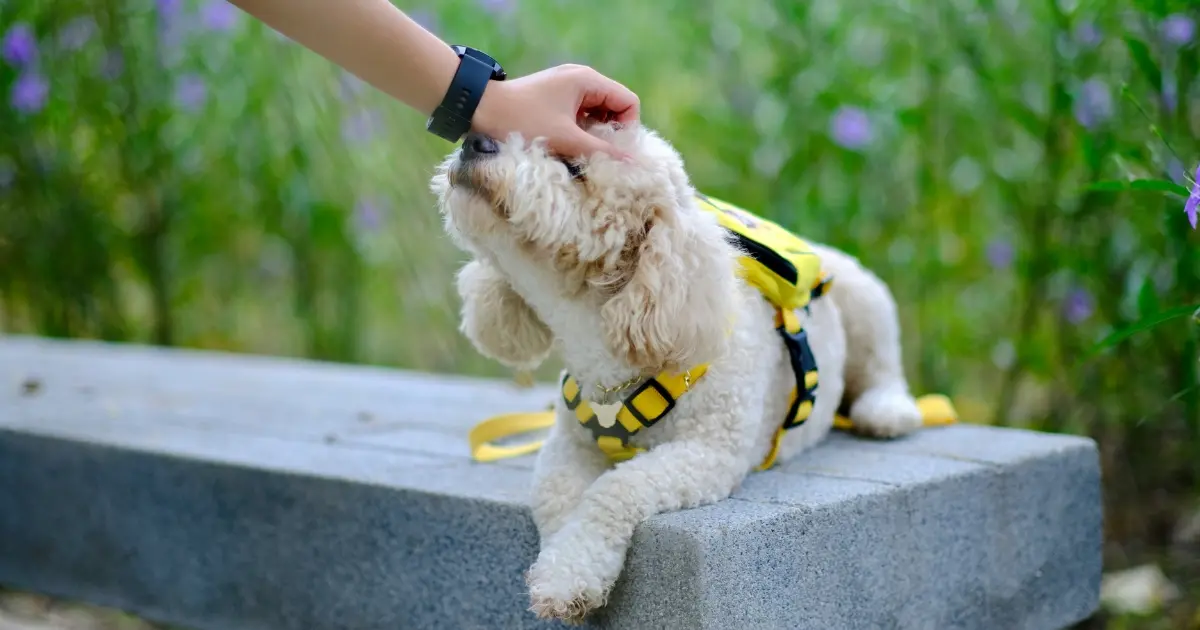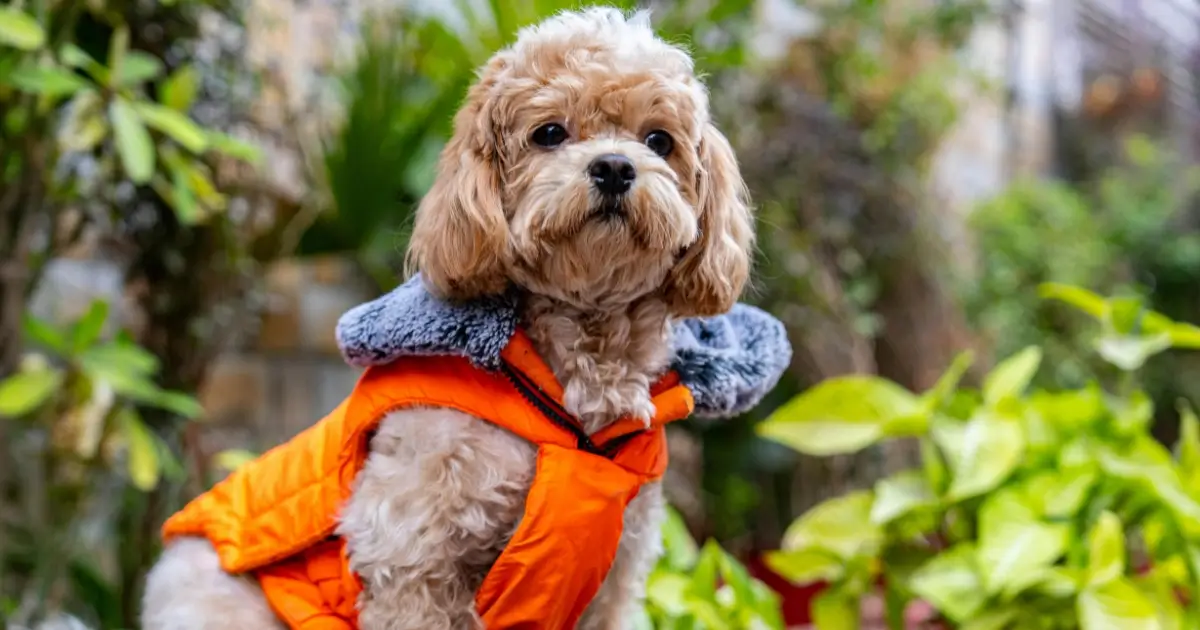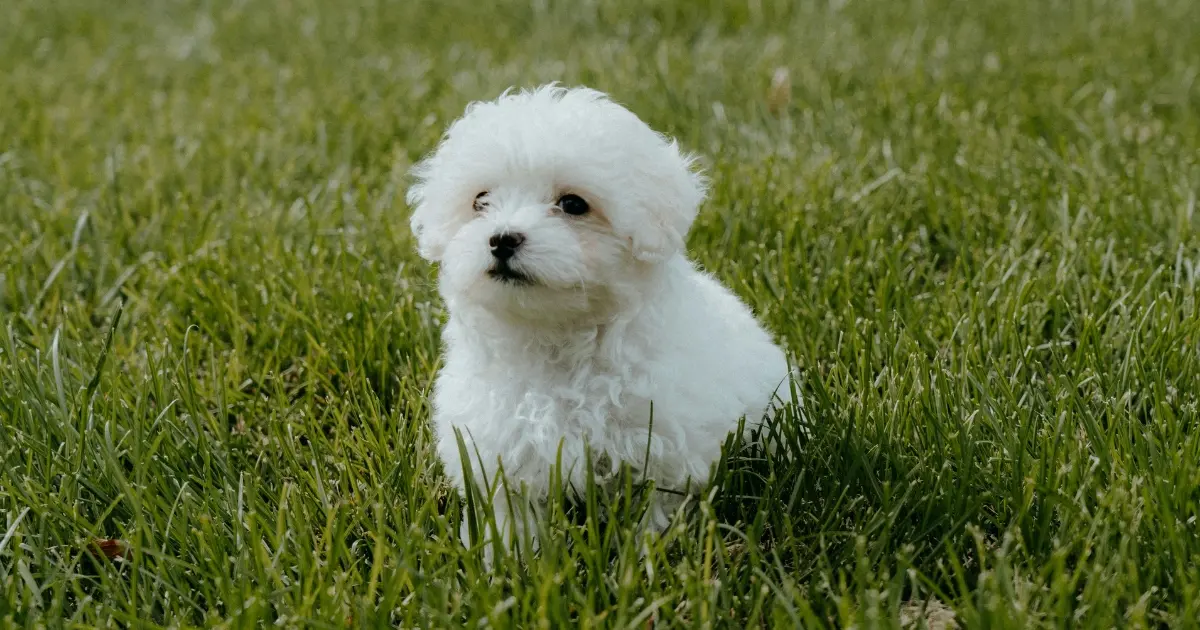Cat lovers often look for unique feline friends. They find exotic domestic cats, which mix wild beauty with home life. Cats like the sleek Abyssinian and playful Bengal are known for their striking looks and personalities.
Table of Contents
Exotic domestic cats vary in shape, size, and color. Some have unique patterns, while others have special physical traits. These cats add a wild touch to homes in the United States, attracting many pet lovers.
In this guide, we’ll look at 12 exotic cat pets you can bring home. We’ll talk about their special traits, care needs, and what makes them unique in the world of cats.
What Are Exotic Domestic Cats?
Exotic domestic cats are special feline breeds that differ from regular house cats. They have unique physical traits or behaviors. This makes them popular pets among cat lovers.
Classification
The scientific name for these cats is Felis catus, just like common house cats. They are recognized by cat associations and have breed standards. Some well-known exotic domestic cats include:
- Bengal
- Sphynx
- Scottish Fold
- Savannah
Exotic Domestics vs. Wild Hybrids
It’s important to know the difference between exotic domestic cats and wild cat hybrids. Domestic cat hybrids come from breeding domestic cats with wild species. While some people keep wild cats as pets, big cat breeding is often illegal and wrong.
| Characteristic | Exotic Domestic Cats | Wild Cat Hybrids |
|---|---|---|
| Ancestry | Domestic cat lineage | Mix of domestic and wild cat species |
| Legal Status | Generally legal to own | Often restricted or illegal |
| Care Requirements | Similar to regular house cats | More complex, specialized needs |
| Temperament | Typically domesticated | Can retain wild instincts |
Knowing these differences is key for those thinking about getting an exotic cat. It helps ensure responsible ownership and follows local laws.
The Appeal of Exotic Domestic Cats
Exotic domestic cats have a special charm. They look striking and have unique personalities. This mix of wild beauty and home companionship is irresistible.
Unique Physical Traits
Many exotic cats have eye-catching features. Some have big ears, giving them a watchful look. Others have spots, making them look like their wild relatives. These traits make them stand out.
Behavior and Personality
Exotic breeds are often playful and full of energy. They’re smart and need to keep their minds busy. Many owners find them to be loving companions, forming strong bonds.
Growing Popularity
The appeal of exotic domestic cats is growing. People love breeds like Bengals with their leopard spots and Savannahs with their tall ears. This interest has led to more breeders focusing on these unique cats.
| Breed | Distinctive Feature | Popularity Rank |
|---|---|---|
| Bengal | Spotted coat | 1 |
| Savannah | Cat big ears | 2 |
| Sphynx | Hairless body | 3 |
As more people want these unique cats, it’s important to know their needs. Proper care ensures these fascinating cats thrive at home.
Popular Domestic Exotic Cat Breeds
Exotic domestic cats are known for their unique looks and personalities. Let’s look at four breeds that are popular among cat lovers.
Abyssinian
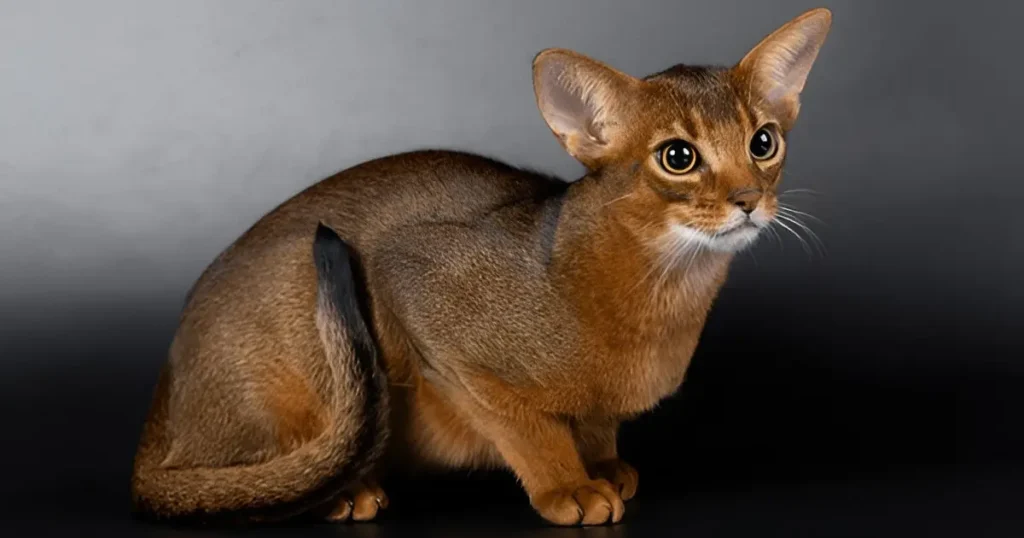
Abyssinians have ticked coats and lively personalities. They love to play and climb, making them great for active owners. Their short coats need little grooming, which is good for those who are busy.
American Bobtail
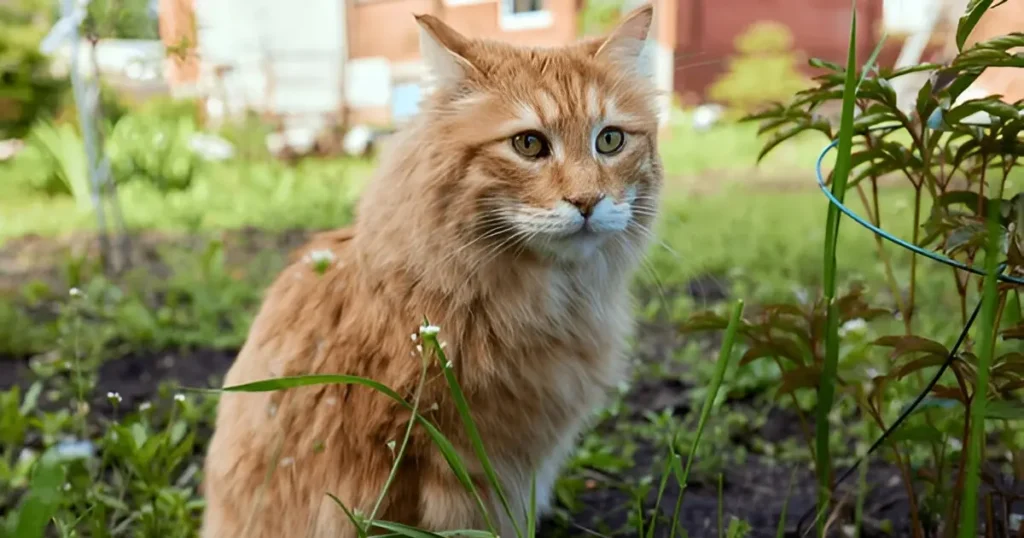
The American Bobtail is known for its short tail. It’s often mistaken for a bobcat mix, but it’s a domestic cat. They are smart and loyal, making them great family pets.
Bambino
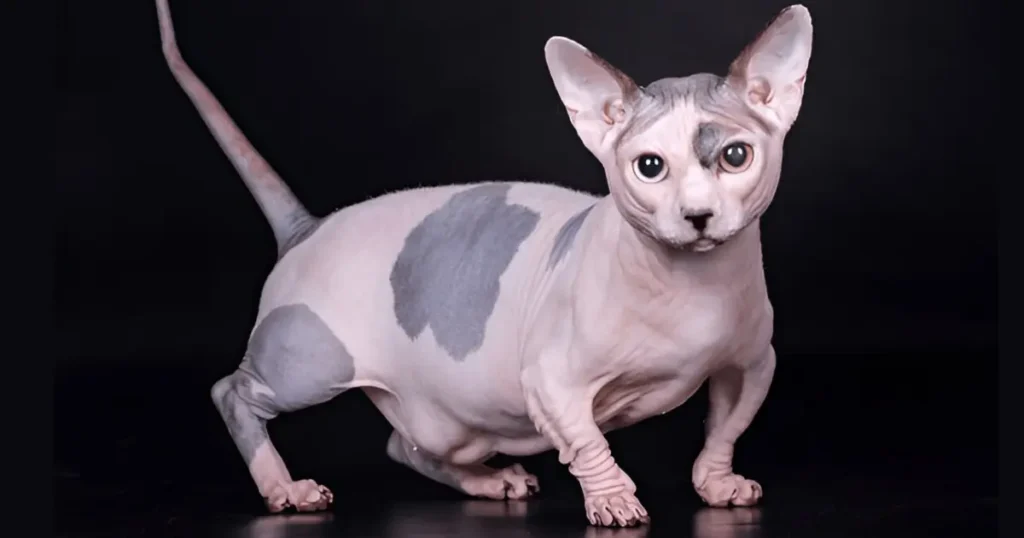
Bambino cats are hairless and have short legs. They mix the Sphynx’s hairlessness with the Munchkin’s short size. Bambinos are loving and playful but need special care because they don’t have fur.
Bengal
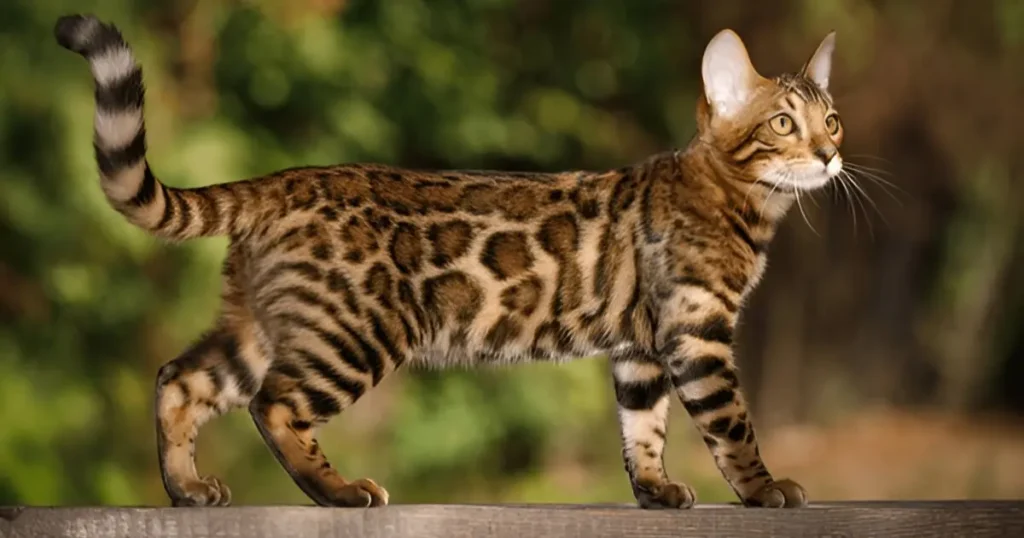
The Bengal cat has a wild-looking coat. People often wonder if it’s a mix of a bengal and domestic short hair cat. But Bengals are actually a breed made by crossing Asian leopard cats with domestic cats. They have leopard-like spots and are very active.
Egyptian Mau
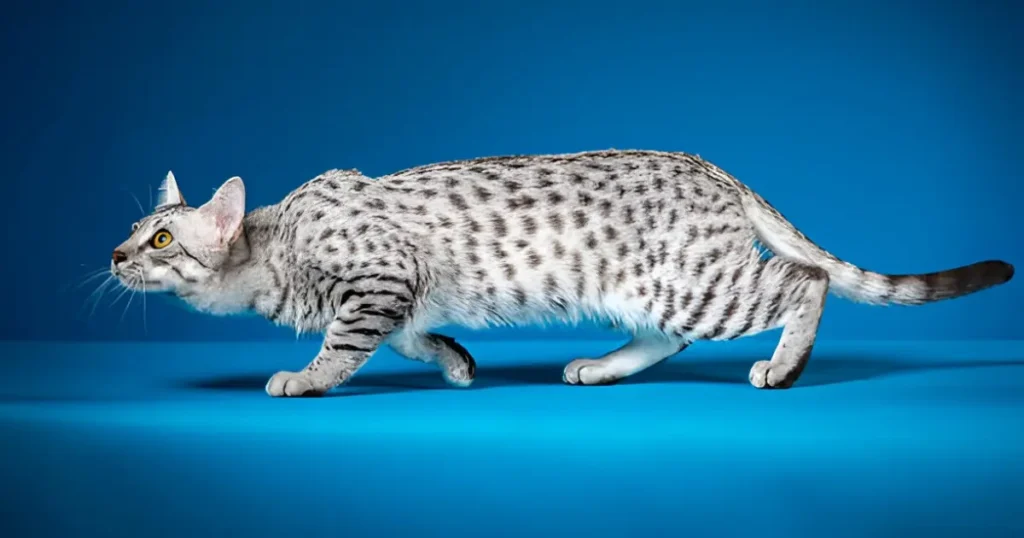
A medium to small, short hair cat that naturally has spots forming throughout their coat. It is the fastest domestic cat and have been recorded at speeds of as high as 30 mph. They are renowned for their loyalty and playfulness.
Khao Manee Cat
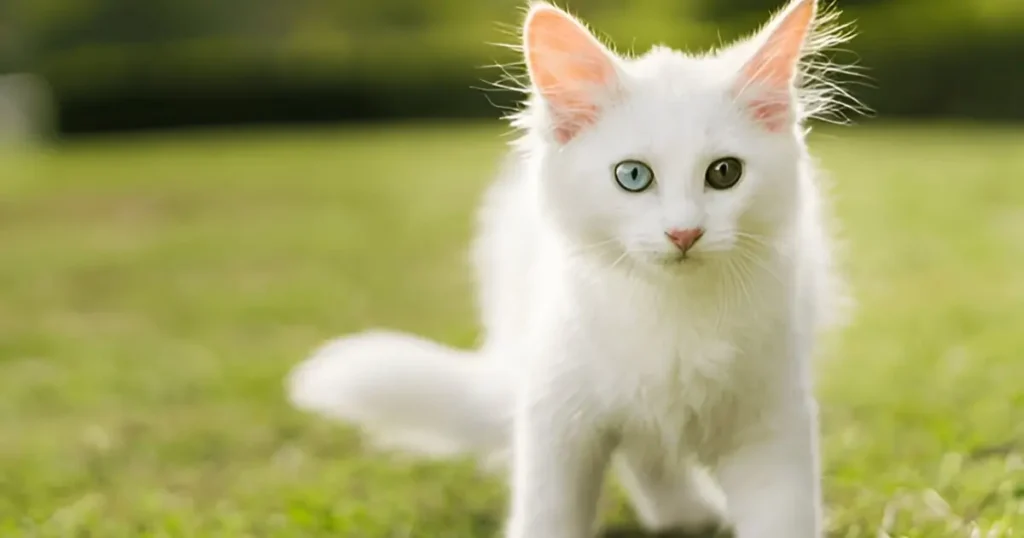
Also known as the “Diamond Eye” cat. This breed was developed in Thailand and has been considered to be among the most expensive cat breeds, since one was gone for 10,000 dollars. Cats with two distinct colors of eyes are extremely sought-after.
Maine Coon
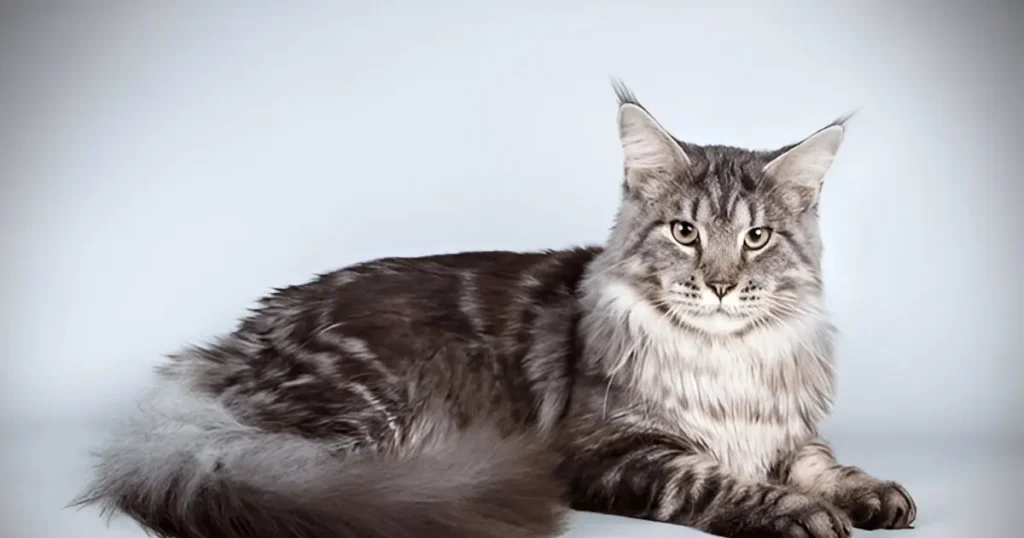
One of the most exotic cat breeds you can have. Male Maine Coon can grow as much as 13 pounds to 18 lbs, and females weigh 8-12 pounds on average.
Munchkin Cat
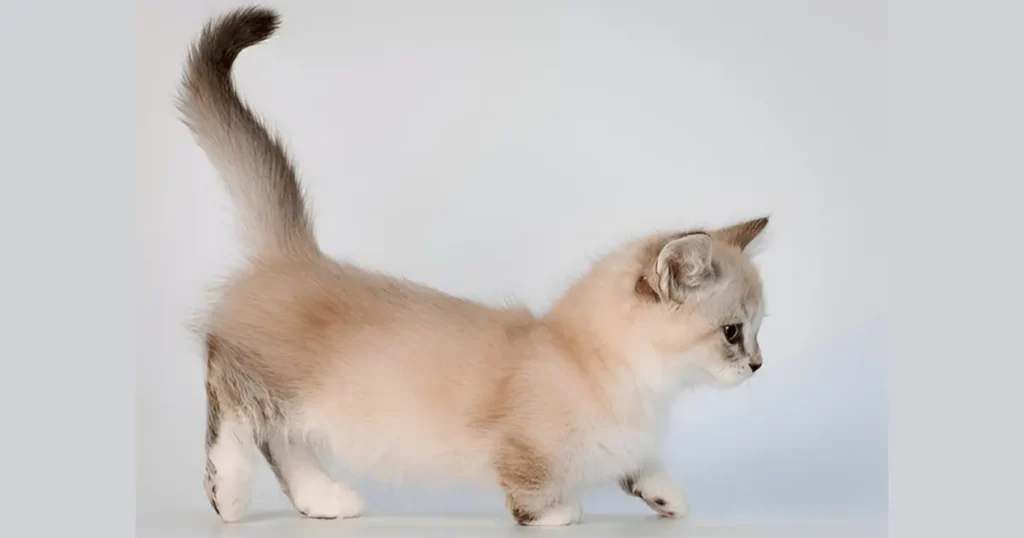
Also known as “Sausage cat”, this breed is fairly new and can be distinguished by their legs that are short.
Norwegian Forest Cat
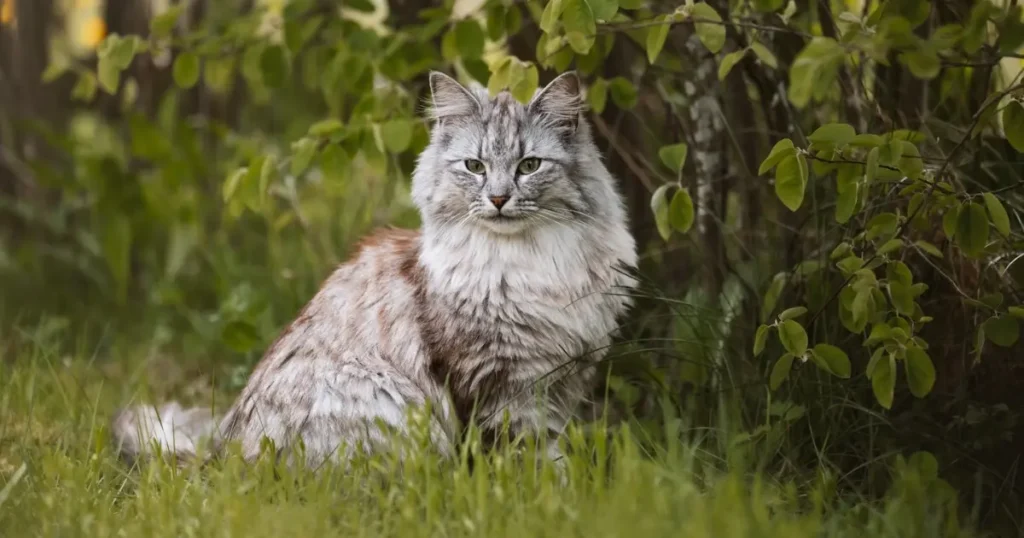
The breed of cat that is a tiger can be found in very cold environment with their shiny long coat of water shed. They weigh more than the normal domestic cat as a male can weigh between 10 and 20 lbs, and females weigh 8 lbs to 18 lbs.
Russian Blue Cat
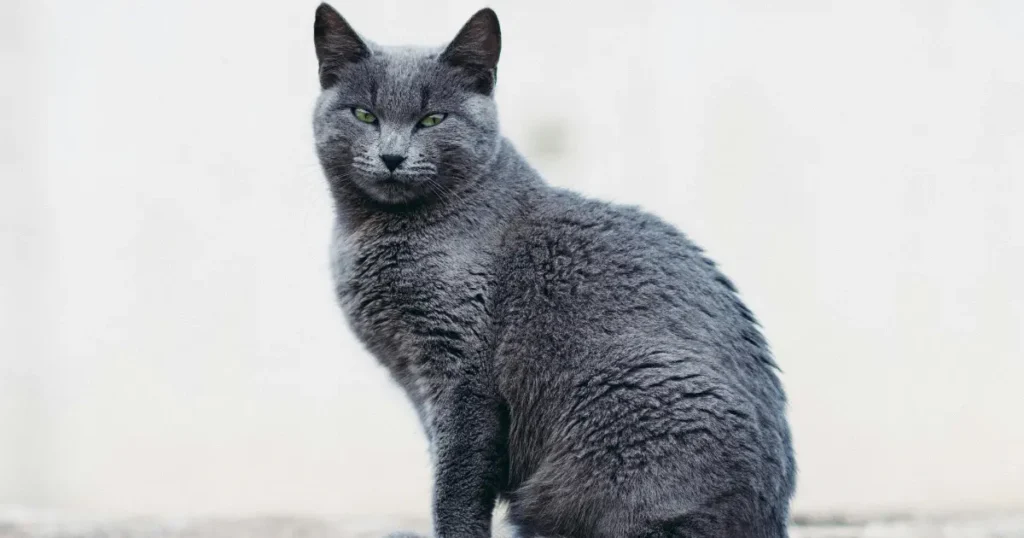
The light-shining grey cat is one of the popular exotic breed. The cat breed is a curious animal that is extremely intelligent and has been observed to play with toys.
Savannah Cat
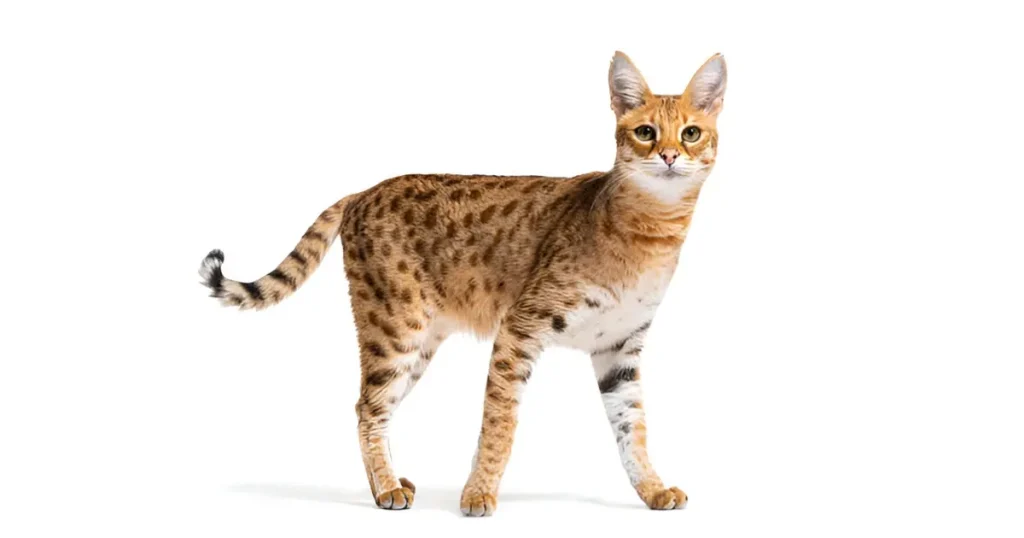
Another cat of a large breed This is an interbreeding of an domestic cat and serval large eyed large eared wild African cats. The cat is extremely loyal and can be found wandering all over the house.
Siberian Forest Cat
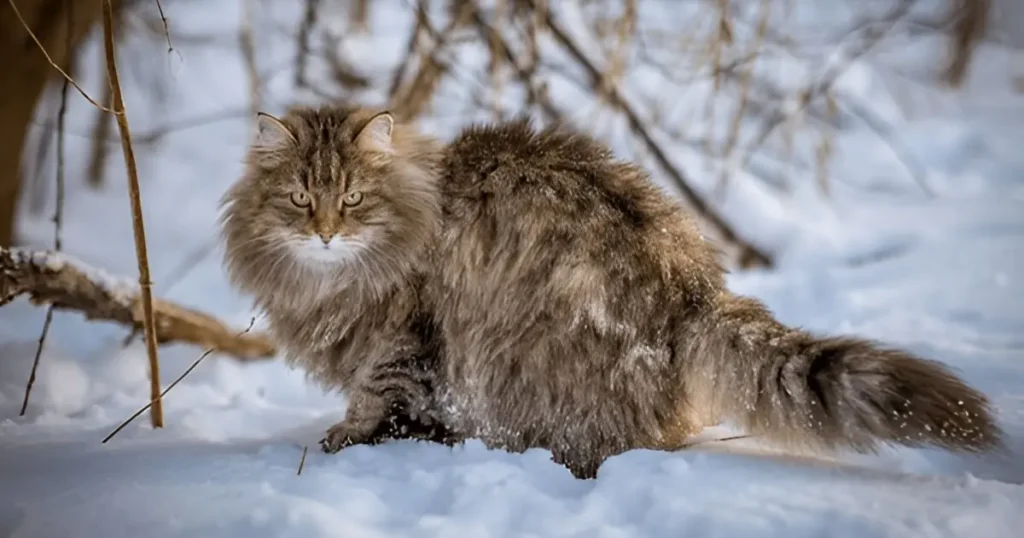
It is a cat breed has similarities with the Norwegian forest cat, and is the native breed of Siberia. This cat isn’t quick to mature and can be up to 5 years old but it is a sturdy medium-sized cat.
| Breed | Origin | Distinctive Feature | Temperament |
|---|---|---|---|
| Abyssinian | Ethiopia | Ticked coat | Active, playful |
| American Bobtail | United States | Short tail | Intelligent, loyal |
| Bambino | United States | Hairless, short legs | Affectionate, energetic |
| Bengal | United States | Leopard-like spots | Energetic, curious |
| Egyptian Mau | Egypt | Spotted coat | Affectionate, lively |
| Khao Manee | Thailand | Pure white coat, odd eyes | Friendly, outgoing |
| Maine Coon | United States | Large size, bushy tail | Gentle, social |
| Munchkin | United States | Short legs | Playful, curious |
| Norwegian Forest Cat | Norway | Thick, water-resistant coat | Friendly, independent |
| Russian Blue | Russia | Silky, silver-blue coat | Quiet, affectionate |
| Savannah | United States | Tall, spotted body | Active, adventurous |
| Siberian Forest Cat | Russia | Thick triple coat | Affectionate, intelligent |
These breeds can be expensive, with some like the ocicat price being in the thousands. But many cat lovers think their unique qualities are worth it.
Legal Considerations for Owning Exotic Cats
Owning exotic cats comes with legal challenges. Laws vary widely across different regions. It’s crucial for potential owners to research local regulations thoroughly.
Regulations in Different Countries and States
In the United States, exotic cat ownership laws differ from state to state. Some states prohibit certain breeds, while others require special permits. Remember, you can’t own a bobcat in many areas. The question “can you own a bobcat” often has a complex legal answer.
| State | Exotic Cat Ownership | Permit Required |
|---|---|---|
| California | Prohibited | N/A |
| Texas | Allowed with restrictions | Yes |
| Florida | Allowed with restrictions | Yes |
Ethical Considerations
Beyond legal concerns, ethical questions arise when considering exotic cat ownership. Many wonder, “can bobcats breed with domestic cats” or “can a bobcat and a domestic cat mate.” While technically possible, such breeding raises serious ethical and health concerns for both parent cats and offspring.
Responsible ownership involves understanding the unique needs of exotic breeds. It’s essential to ensure they receive proper care. Before deciding to own an exotic feline companion, consider the impact on local ecosystems and the welfare of the cats themselves.
Health Concerns and Veterinary Care
Exotic domestic cats are beautiful and unique but face health challenges. It’s important to understand these issues to care for your cat well. Just like exotic cats need special homes, they also need special healthcare.
Common Health Issues in Exotic Cats
Exotic cats often have health problems specific to their breed. Some may have genetic conditions, while others may get certain diseases because of their looks. For example, flat-faced breeds like Persians can have trouble breathing and eye issues.
Interestingly, the health of exotic cats varies as much as the meanest cat breeds vary in temperament. Some common health issues include:
- Heart conditions
- Kidney diseases
- Respiratory problems
- Dental issues
Importance of Regular Checkups
Regular vet visits are key for exotic cats. These visits help find health problems early. Just like knowing what color cat is most adopted helps shelters, your vet can give breed-specific advice and a health plan for your cat.
Preventive care, like vaccinations and parasite control, is crucial. Your exotic cat might need special diets or supplements for health. By being proactive with your cat’s healthcare, you can ensure a long, happy life for your unique pet.
Creating the Ideal Living Environment
Exotic domestic cats, like a house cat that looks like a bobcat, need a special living space. They require an environment that meets their specific needs and instincts.
Indoor vs. Outdoor Living
For safety, indoor living is best for exotic breeds. A housecat that looks like a leopard might want to explore outside. Indoor spaces can be set up to look like their natural habitats, keeping them happy and engaged.
Necessary Space and Enrichment Activities
Pet cats that look like lions need lots of room to play and explore. They need vertical spaces, like cat trees and shelves. Also, scratching posts, interactive toys, and puzzle feeders are great for their minds.
Regular playtime with their owners is key for their health. Each exotic breed has its own needs. Talk to a vet or feline behavior specialist to make the best home for your cat. With the right care, your exotic domestic cat can do well at home.
FAQ
What makes a cat breed “exotic”?
Exotic cat breeds have unique features like unusual coat patterns and ear shapes. They often come from wild cat species but are now domesticated.
Are exotic domestic cats legal to own?
Owning exotic domestic cats can vary by location. Most are legal in many places, but check local laws. Some may need special permits or be restricted.
Do exotic domestic cats require special care?
Yes, they need special care. This includes specific diets, grooming, and enrichment. Research their needs before adopting.
Can exotic domestic cats live with other pets?
Many can live with other pets, but it depends on the cat’s personality. Some, like Bengals, might not be good with small animals.
Are exotic domestic cats more expensive than regular cats?
Generally, yes. They are pricier due to their rarity and special breeding. Prices can be hundreds to thousands of dollars.
Can a bobcat breed with a domestic cat?
Breeding bobcats with domestic cats is rare and not recommended. Such hybrids are illegal in most places.
What is the largest exotic domestic cat breed?
The Maine Coon is often the largest, with males up to 18 pounds. But size can vary within breeds.
Are there any hypoallergenic exotic cat breeds?
No cat is truly hypoallergenic, but some like Sphynx or Siberian may be better for those with allergies.
Do exotic domestic cats have a shorter lifespan than regular cats?
Not always. Lifespan varies by breed and health. Some may face genetic issues, but proper care can help them live long.
Can I adopt an exotic domestic cat from a shelter?
Yes, it’s possible to find exotic cats in shelters or through rescue groups. It’s a more affordable and ethical way to get one.
